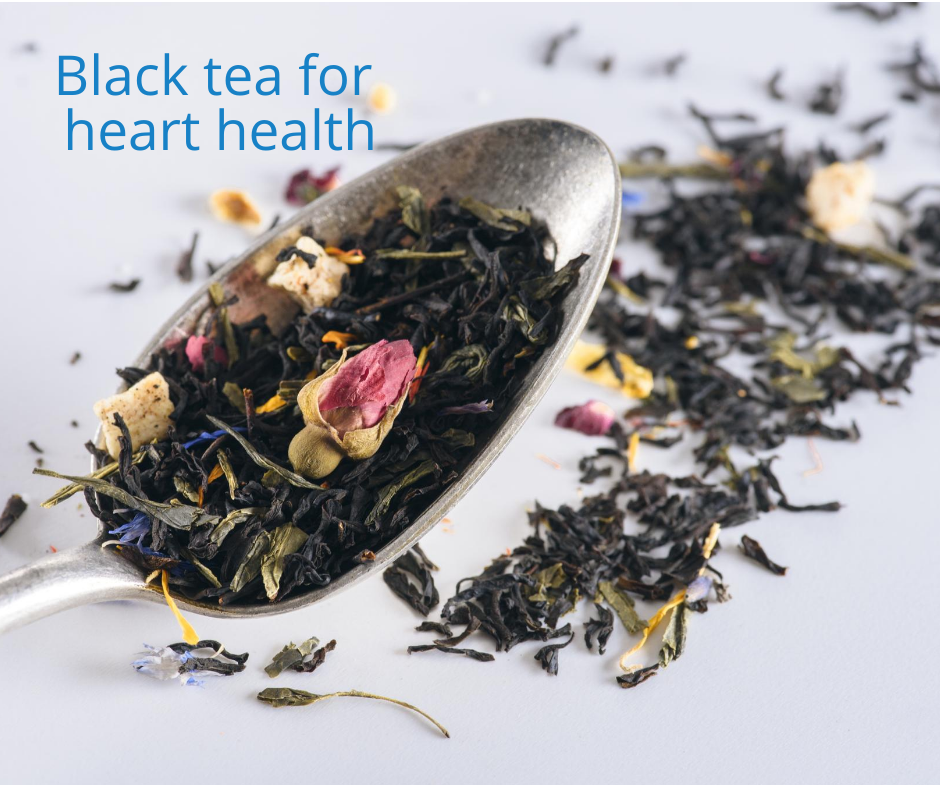
10 Evidence-Based Health Benefits of Black Tea
Share
Original post:
Written by Autumn Enloe, MS, RD, LD
https://www.healthline.com/nutrition/black-tea-benefits - for the full article.
Aside from water, black tea is one of the most consumed beverages in the world.
It comes from the Camellia sinensis plant and is often blended with other plants for different flavors, such as Earl Grey, English breakfast or chai.
It’s stronger in flavor and contains more caffeine than other teas, but less caffeine than coffee.
Black tea also offers a variety of health benefits because it contains antioxidants and compounds that can help reduce inflammation in the body.
Here are 10 health benefits of black tea, all supported by science.
Antioxidants are known to provide a host of health benefits.
Consuming them can help remove free radicals and decrease cell damage in the body. This ultimately may help decrease the risk of chronic disease (
Polyphenols are a type of antioxidant found in certain foods and beverages, including black tea.
Groups of polyphenols, including catechins, theaflavins and thearubigins, are the main sources of antioxidants in black tea and may promote overall health (3).
Black tea contains another group of antioxidants called flavonoids, which benefit heart health.
Along with tea, flavonoids can be found in vegetables, fruits, red wine and dark chocolate.
Another study found that those who drank three cups of black tea per day had an 11% reduced risk of developing heart disease (
Adding black tea to your daily routine is an easy way to incorporate antioxidants into your diet and potentially reduce your risk of future health complications.
The body contains two lipoproteins that transport cholesterol throughout the body.
One is low-density lipoprotein (LDL), and the other is high-density lipoprotein (HDL).
LDL is considered the “bad” lipoprotein because it transports cholesterol to cells throughout the body. Meanwhile, HDL is considered the “good” lipoprotein because it transports cholesterol away from your cells and to the liver to be excreted.
Studies have found that the type of bacteria in your gut may play a significant role in your health.
That’s because the gut contains trillions of bacteria, as well as 70–80% of your immune system (
High blood pressure affects approximately 1 billion people worldwide (
It can increase your risk of heart and kidney failure, stroke, vision loss and heart attacks. Fortunately, changes in your diet and lifestyle can lower your blood pressure (
A stroke can occur when a blood vessel in the brain is either blocked or ruptures. It’s the second leading cause of death worldwide (
Fortunately, 80% of strokes are preventable. For example, managing your diet, physical activity, blood pressure and not smoking can help reduce the risk of stroke (
Elevated blood sugar levels may increase your risk of health complications, such as type 2 diabetes, obesity, cardiovascular disease, kidney failure and depression (24,
Consuming large amounts of sugar, particularly from sweetened beverages, has been shown to increase blood sugar values and the risk of type 2 diabetes (
Over 100 different types of cancer exist, and some are not preventable.
Nevertheless, the polyphenols found in black tea may help prevent cancer cell survival.
Black tea contains caffeine and an amino acid called L-theanine, which can improve alertness and focus.
L-theanine increases alpha activity in the brain, resulting in relaxation and better focus.
Not only is black tea good for you, it’s also simple to make.
To make black tea, first boil water. If using store-bought tea bags, simply add a tea bag to a mug and fill it with the hot water.
If using loose leaf tea, use 2–3 grams of tea leaves for every six ounces of water in a strainer.
Shop for a large selection of black tea SHOP BLACK TEA NOW
Let the tea steep in the water for 3–5 minutes, depending on your taste preference. For a stronger tea, use more tea leaves and steep for a longer period of time.
After steeping, remove the tea leaves or tea bag from the water and enjoy.
Black tea is a great option if you are looking for a low-calorie, non-sweetened beverage with less caffeine than coffee or energy drinks.
It has a strong, unique flavor and contains plenty of antioxidants, which can provide several health benefits. These include improved cholesterol, better gut health and decreased blood pressure.
Best of all, it’s simple to make and can easily be found at many stores or online.
If you haven’t done so before, consider trying black tea so you can reap its numerous health benefits.
